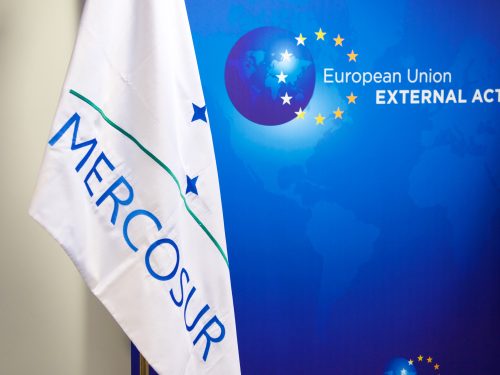Communiqué
Print
Share on
The simplification of rules initiated with the Omnibus packages, a realistic approach to climate neutrality and a growth-oriented EU budget among the priorities
Rome, 6 November 2025 - On the occasion of the 7th Trilateral Forum between Confindustria, BDI and MEDEF, held in Rome with the participation of the Executive Vice-President of the European Commission Stéphane Séjourné and the presidents of the three main European industrial organisations - Emanuele Orsini (Confindustria), Peter Leibinger (BDI) and Patrick Martin (MEDEF) - was signed a joint declaration to urge the European institutions for a change of pace in industrial policies (here the full version of the declaration)
"Today, Europe is at a crossroads. The world is changing - and Europe cannot stand by and watch. Now more than ever, it must assert its independence, protect our common security, and take the lead in the development of technologies essential to its strategic interests,' reads the text signed by organisations representing entrepreneurs from the top three economies of the European Union.
Confindustria, BDI and MEDEF sound the alarm: "It is time to recognise that Europe is seriously falling behind and that the risk of decline and deindustrialisation is now higher than ever. It is time to take a decisive step forward, in line with the measures identified in the Draghi and Letta reports, to strengthen the continent's industrial resilience and strategic autonomy, close the competitiveness gap in key value chains and promote research and innovation'.
To reverse the course, the three organisations address a "urgent appeal to EU institutions and Member States to act promptly", according to six strategic priorities to boost competitiveness and strengthen the continent's economic sovereignty.
- Simplifying the rules and completing the Single Market
Confindustria, BDI and MEDEF call for full implementation of theEU simplification agendalaunched with the 'Omnibus' packages, to reduce bureaucratic burdens and timescales, in particular of the due diligence (CSDD) and sustainability reporting (CSRD) directives, and to harmonise environmental, digital and energy regulations. Simplification, they emphasise, must extend to the most burdensome regulations for businesses, while the completion of the Single Market - with the removal of barriers to the free movement of goods, services, capital and people - remains essential to building a more integrated and competitive Europe. - Making decarbonisation an engine of competitiveness
The green transition must strengthen, not weaken, Europe's production base. The three industry confederations call for a balanced and realistic approach to the climate neutralityensuring affordable energy and a stable regulatory framework.
Among the priorities:
- reforming the system ETS to limit volatility and speculation;
- one CBAM fair and consistent with the ETS;
- filled technological neutralityrecognising an equal role for nuclear, renewables, gas and hydrogen;
- emissions reduction targets compatible with technology and the real economy. The proposed 90% reduction of CO₂ emissions by 2040 raises serious issues in terms of feasibility and the enabling conditions must first be secured: competitive energy, predictability of investments, regulation. - Strengthening technological sovereignty
Europe, which today produces only 11% of the world's semiconductors, must reduce its strategic dependencies and consolidate its digital autonomy. The declaration calls for enhancing sovereign infrastructure and clouds, strengthening the cybersecurityprotect companies from extraterritorial laws and invest in artificial intelligence e digital skillspillars of future competitiveness. - A growth-oriented European budget
Next Multiannual Financial Framework (MFF) should preserve the proposal of a European Competitiveness Funddesigned to finance large industrial projects and reduce the fragmentation of national programmes. The three organisations reject the introduction of new European own resources - such as CORE or the use of ETS revenues - which would increase the burden on companies. Instead, they urge the completion of theBanking Union and theCapital Markets Union to channel private savings into productive investments. - A European strategy for life sciences
With a trade surplus of almost EUR 200 billion in 2024, the pharmaceutical sector is indicated as a pillar of the European industrial sovereignty. The three industry confederations call for full implementation of the EU Strategy for Life Sciencesstrengthening the protection of intellectual property, promoting technology transfer and simplifying legislation on medical and diagnostic devices. - Defence and space: investing in strategic autonomy
Confindustria, BDI and MEDEF call for a decisive strengthening of the European Defence Industrial Base and the sector spacestill too fragmented. A common strategy is needed between France, Germany and Italy, with dedicated resources within the European Competitiveness Fund and a direct involvement of industry in defining common priorities.
Competitiveness as Europe's compass
In their concluding document, the three organisations warn that without a strong industrial policy, Europe risks losing influence, security and prosperity. In collaboration with BusinessEuropethey are committed to promoting a vision of Industrially robust, digitally autonomous and sustainable Europe.
"Competitiveness must become the compass of every European policy, regulation and investment', is the final appeal of the French, German and Italian entrepreneurs.




